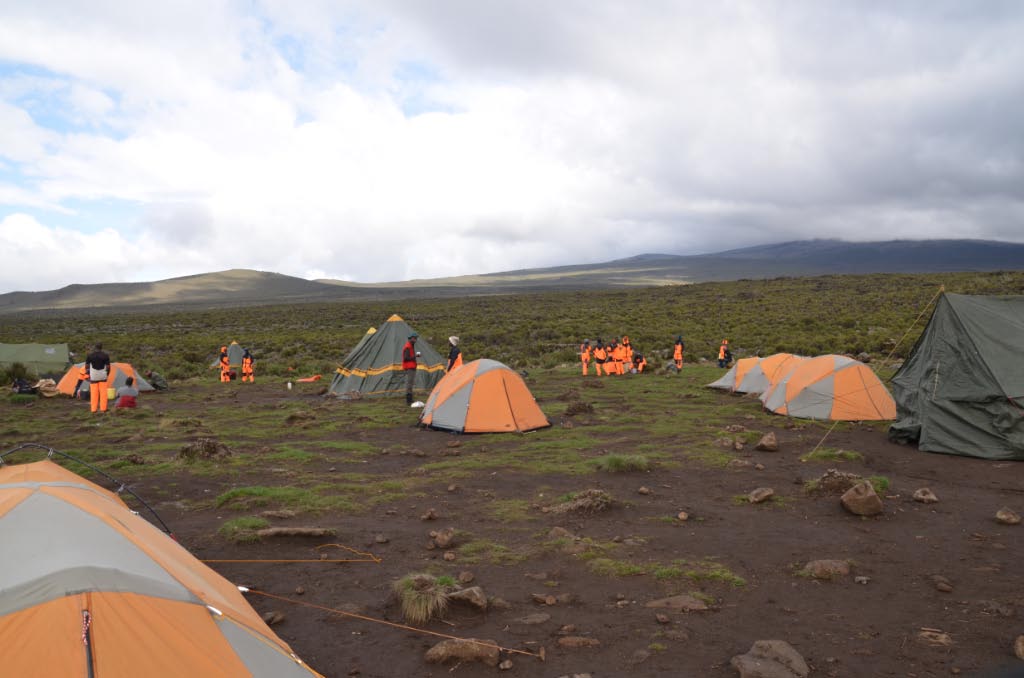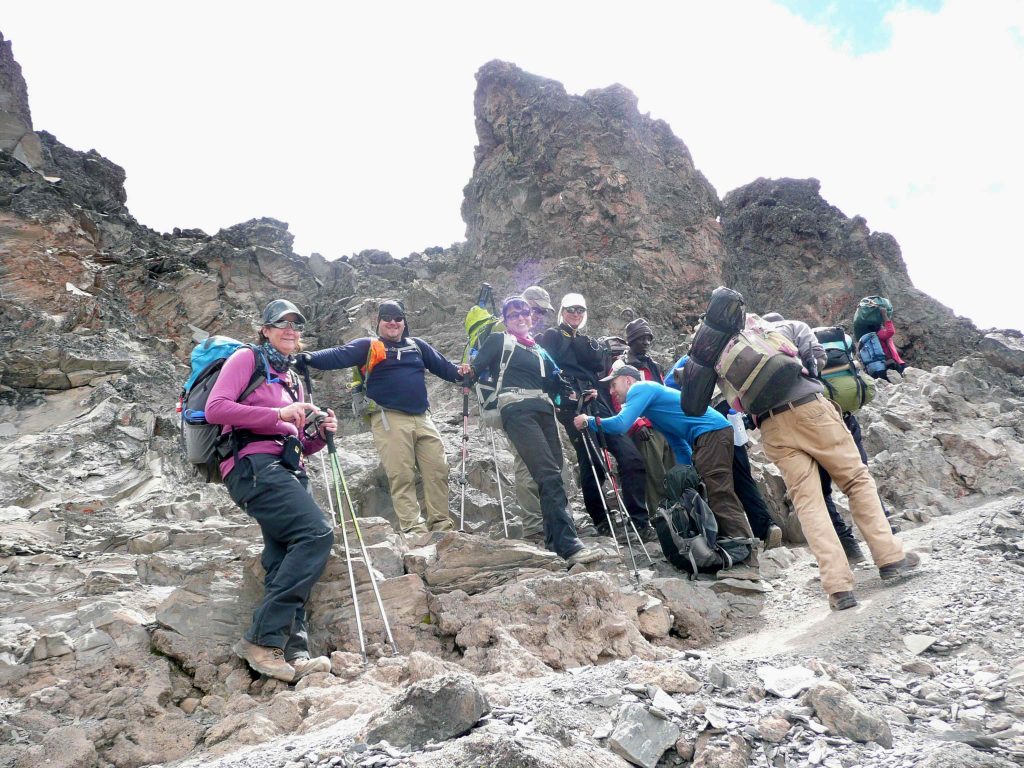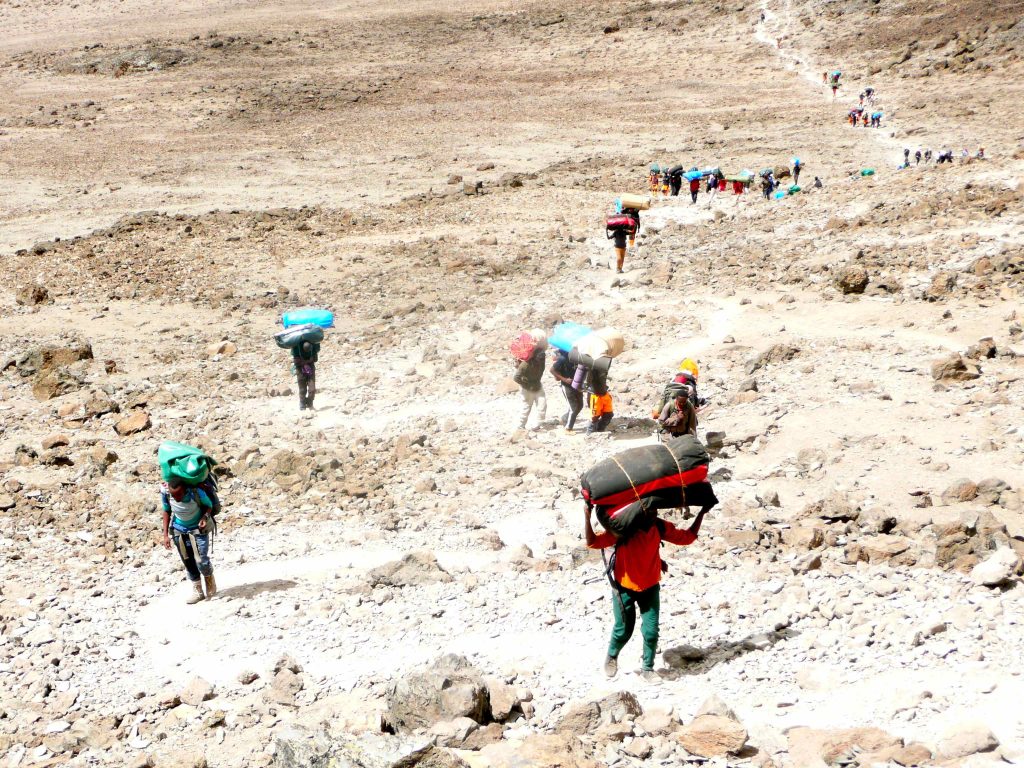We recommend the items on this list for Mount Kilimanjaro or Mount Meru treks.
Some items may be available to rent on-location in Tanzania, however they are still necessary for the trek. Please reach out if you would like us to help arrange rental of any necessary items.
Essentials
Personal Items
- - 2-Liter Water Bottle or backpack hydration bladder (or two 1-liter bottles)
- - Any prescription medication you take regularly
- - Moleskin (for prevention of blisters)
- - Feminine Hygiene items, if necessary
- - Diamox for altitude sickness (Discuss with your doctor first)
- - Washcloth or pack towel
- - Soap
- - Hand sanitizer
- - Sunscreen (the sun is very strong on some parts of the climb)
- Lip Balm
Note: you may not have access to a full shower, but may wash your face/neck as needed
Optional: Drink enhancers, such as gatorade powder to add to water and snacks, such as energy bars/granola bars to keep you energized, especially for the summit.

Clothing
- - 3 - 4 T-shirts (quick dry or breathable cotton)
- - 2 - 3 pairs hiking pants
- - Rain Gear: waterproof rain pants and waterproof rain jacket, with hood.
Warm Layers/ Arctic Gear
- - 1 pair thermal (polypro) underlayers (top and bottoms)
- - 2 Fleece jackets or sweaters
- - Warm gloves (rated for 0 C)
- - Winter jacket (rated for 0 C) Must be waterproof
- - Neckwarmer/ scarf
- - Warm Hat
Essential Gear
- - Hiking boots - Waterproof
- - Camp shoes or running shoes for evenings
- - 4-5 pairs of hiking socks (wool is recommended).
- - warm socks for sleeping
- - Sock liners
- - Day pack
- - Expedition pack
- - Sleeping bag rated to -20C or lower (for comfort at high altitudes)
- Please contact us if you would like to rent a sleeping bag for your climb, at an additional cost.
- - Inflatable/ backpacking pillow
- - Trekking Poles
- - Gaiters
- - Sun Hat
- - Sun Glasses
Boots and Socks: Ensure your boots are properly broken-in before begin your climb.
Also, choose wool socks or hiking socks, not cotton.
This will ensure better comfort and reduce blisters.
Day Pack: you will carry your own small pack each day of the trek. It should hold your water, lunch, rain gear and any essentials you will need.
30 -40L packs are the most practical.
Expedition Pack: A Porter will carry your Expedition Pack up the mountain during your climb.
You will have access to it each morning and evening.
50L or larger is recommended. Choose a bag that is easily carried, not hard luggage.

Optional: MP3 Player and headphones, flashlight/torch and camera.
Electronic Essentials
- - Headlamp + extra batteries
- - Solar charger or power bank
Head Lamp: Headlamps are required for the night climb.
A flashlight or torch may be used at camps, but for the final summit a head lamp is necessary.

More Information - Weight Limits
There is a maximum limit of 20 kgs (approx 44 lbs) that each porter is allowed to carry during Kilimanjaro climbs.
It is essential to ensure the gear in each individual’s expedition bag does not exceed this weight limit, otherwise an additional charge will be required per day, to cover the cost of an additional porter.
Please adhere to these guidelines, and everything should be within the 20 kg limits.
More Information - Renting Gear
Before beginning your Kilimanjaro Climb we will have a climb briefing and may need to inspect your gear to insure your own safety before the commencement of the climb.
If there are any items you would like to rent in Tanzania (warm jackets, sleeping bags or Trekking poles) please reach out, as these items are available for a fee and could help you reduce carrying additional gear during your international flights.
